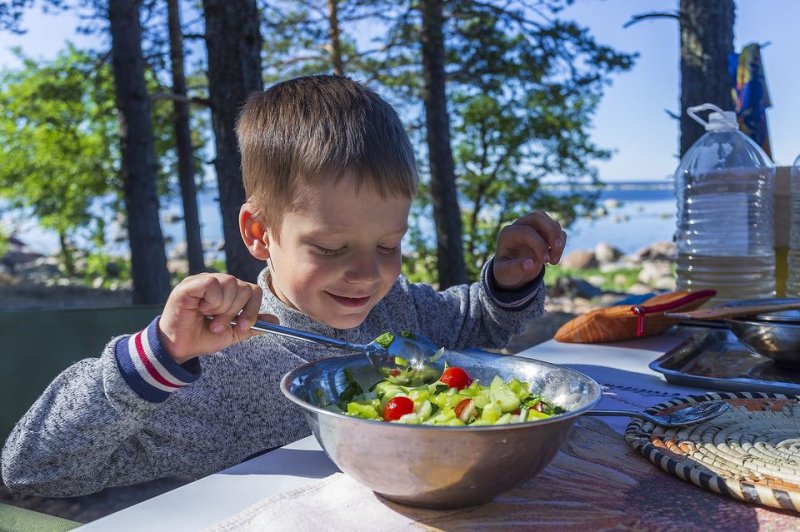Rewarding kids for trying vegetables may encourage healthy eating
[ad_1]
Do you have a youngster who refuses to take in something environmentally friendly? Satisfying them for making an attempt new greens may well make them far more eager to consume them, a new analyze promises.
“It is vital to commence taking in greens from a younger age,” said lead researcher Britt van Belkom, from the Youth, Meals and Well being program at Maastricht University’s Institute for Food stuff, Well being and Protection by Style and design in the Netherlands.
“We know from former study that youthful small children generally have to attempt a new vegetable eight to 10 periods in advance of they like it,” she pointed out. “And so we appeared at no matter if consistently asking small children to test some vegetables would make them additional willing to try to eat their greens. We were also interested in no matter whether providing a pleasurable reward would make a variance.”
The research involved almost 600 children, ages 1 to 4, at day treatment centers in the Netherlands. They ended up randomly assigned to one of a few groups: publicity/reward, publicity/no reward, or no exposure/no reward (manage team).
Those in the 1st two teams were given the possibility to try out a vary of greens every working day they attended their working day care heart for three months. Those in the reward group were presented exciting, non-food benefits this sort of as a sticker or toy crown when they attempted some veggies.
At the start out and end of the study, the scientists assessed the children’s understanding of 14 greens (tomato, lettuce, cucumber, carrot, bell pepper, onion, broccoli, peas, cauliflower, mushrooms, inexperienced beans, chicory, pumpkin and asparagus) and their willingness to taste 6 of them.
In both equally the exposure/reward and exposure/no reward teams, kids could discover about 9 vegetables at the start out of the examine and about 11 at the conclude of the review, when compared with about 8 and 10 in the regulate team.
At the start out of the review, kids in all a few teams had been willing to attempt 5 to 6 vegetables. By the end of the analyze, that quantity decreased in the management group, remained the exact same in the exposure/no reward group and rose to 7 in the exposure/reward team.
The analyze was offered at the European Congress on Obesity, held in Maastricht, the Netherlands, May well 4-7. Study presented at conferences ought to be deemed preliminary right until posted in a peer-reviewed journal.
“Frequently giving vegetables to toddlers at day treatment centers substantially will increase their capability to identify different greens,” van Belkom explained in a meeting news release. “But satisfying toddlers for tasting greens appears to also boost their willingness to consider distinct greens.”
She added that the “variety of reward is, nonetheless, pretty critical — it should be enjoyable but not meals.”
Extra data
For tips on obtaining your baby to consume additional fruits and vegetables, see the American Academy of Pediatrics.
Copyright © 2022 HealthDay. All legal rights reserved.

[ad_2]
Resource connection






